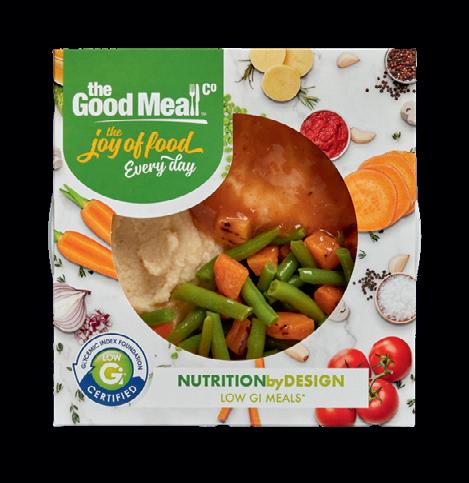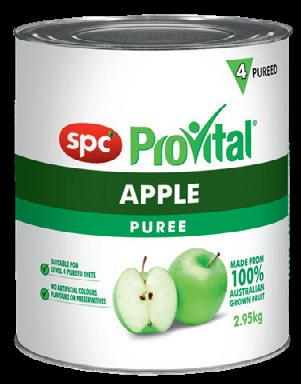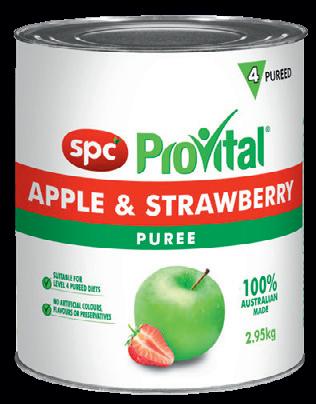
2 minute read
The Importance of Nutrition: Supporting the Transition from Hospital to Home
There is no denying that a healthy diet is vital to our overall health. Particularly after a hospital stay, proper nutrition is important during the healing process and can often be a key factor in preventing patients from returning to the hospital. Many patients experience nutrition deterioration throughout their hospital stay, even those whose nutritional status is adequate upon admission.
What is Malnutrition & Its Consequences?
Malnutrition is a broad term to describe any imbalance in nutrition; from over-nutrition often seen in the developed world, to undernutrition seen in many developing countries, but also in hospitals and residential care facilities in developed nations. Malnutrition can develop because of deficiency in dietary intake, increased requirements associated with a disease state, from complications of an underlying illness such as poor absorption and excessive nutrient losses.
Malnutrition is associated with negative outcomes for patients, including higher infection and complication rates, increased muscle loss, impaired wound healing, longer length of hospital stays, and increased morbidity and mortality.
Malnutrition has often been referred to as the “skeleton in the hospital closet”, as it is often overlooked, undiagnosed and untreated. Most of the adverse effects on patients and the healthcare system can be prevented or improved through nutrition care. However, research has revealed that it is just as important, as part of effective discharge planning, to provide support, including meal support to patients who need them. Supporting patients with easy and convenient access to ready-made meal solutions can significantly impact both short-term recovery results and the long-term health of patients.
Supporting the Transition from Hospital to Home
Individuals’ nutritional needs don’t stop once they’re discharged from the hospital. In fact, adequate food intake is critical for promoting continued recovery and independence at home.
Patients with chronic conditions like obesity, diabetes, or heart disease may require a low sugar, fat, sodium, or cholesterol diet. Older adults who have been discharged from hospital do not always have guidance and follow-up on how to get proper nutrition. With the right nutrition, healing, rehabilitation, and recovery can happen faster, while the chance of readmission to hospital decreases.
Studies have shown that the convenience of ready-made, home-delivered meals can increase both diet quality and nutrient intake. This offers significant advantages to both the patient and the health service in terms of improved nutritional outcomes and decreased hospital readmissions.
The advantages of home-delivered meals for patients following a hospital stay are clear. At The Good Meal Company, we provide ready-made meal solutions designed to help hospitals, community care & NDIS providers, nursing and allied health teams provide their patients and clients with nutrition support at the start of their recovery.
Under the Good Meal Company brand, SPC Care manufactures and delivers a range of pre-prepared meals designed to support the nutritional needs of patients. Carefully developed, our meals are snap frozen to lock in nutrition and flavour. All meals are manufactured at our production facility in Sydney and delivered to patients’ homes throughout Australia.
How to order?
1. Jump online (www.goodmeal.com.au) and select your meals. Add 10+ meals to your cart for the week ahead and receive free delivery. No long-term contract is required.
2. Order and pay. Check out online or simply call our friendly team (1800 155 255) to place your order.
3. Meals delivered. The delicious meals will be delivered direct to the home on the date and time most suitable for you.
For information on the comprehensive range of ready-made meals available, please visit www.goodmeal.com.au or contact Sarah Donnelly (National Account Manager) on 0490 904 258 for more information.
» For more information
SPC Care spccare.com













